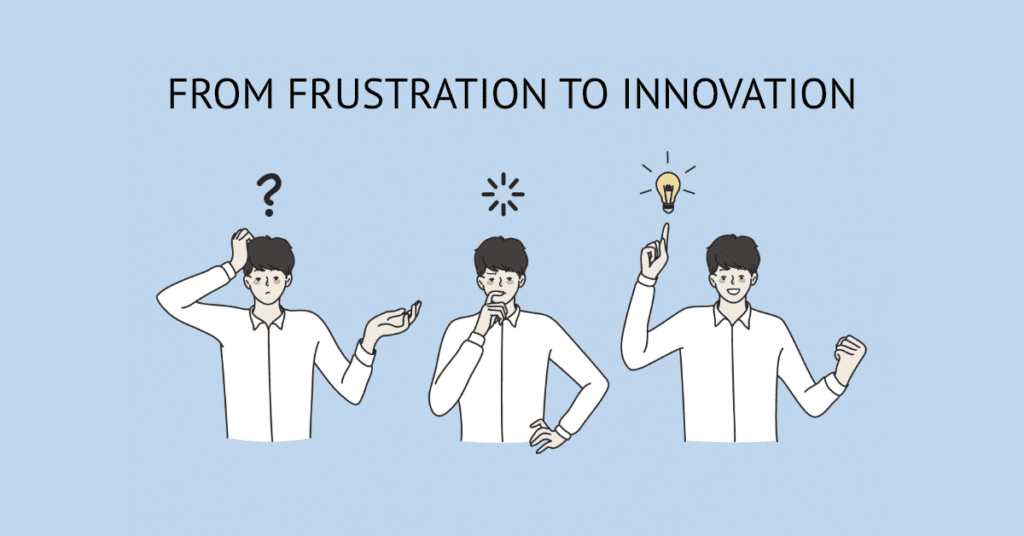Daniel Milligan was interviewed as part of our Founder Story series for the Lean Culture meetup. He is the founder of a fast-growing software company focused on construction management.
Founder Story: Daniel Milligan MRICS
Daniel Milligan, MRICS, is the founder of Frame Solutions, a fast-growing project-delivery software company in the construction technology sector, specifically providing project management and contract administration software tailored for the built environment.
Early in his career, Daniel saw first-hand the challenges consultants face in delivering projects efficiently. These experiences inspired him to create better tools for the profession. For the last five years, he has led one of the fastest-growing project-delivery software companies, bringing first-hand insight as a former professional.
Here are four pieces of advice Daniel shares for founders:
Discipline beats motivation
Motivation is fleeting; some days you have it, some days you don’t. Discipline — showing up and doing the hard reps anyway — drives progress and reduces anxiety because you did what needed to be done. Treat work like athletic training and show up even on days you’re feeling doubts or a lack of motivation.
Master consultative sales
Selling is sustained, empathetic communication: diagnose first, then prescribe; keep selling through onboarding; study sales, psychology, and incentives to understand every stakeholder in an enterprise sale.
Daniel Milligan explains that when he first started his company, he struggled with sales because, coming from a professional and technical background, “sales was a dirty word.” What changed everything for him was reframing sales as helping, not persuading. He compares good selling to being a doctor: you diagnose before prescribing. The goal is to understand a client’s real problems and offer a solution only when you can genuinely help. If you can’t, you should say so honestly.
He emphasizes that sales is really about communication, not manipulation. To be effective, founders must learn how people think and decide—through studying psychology, philosophy, and even macroeconomics—to understand motivation and behavior. Selling, especially in B2B or enterprise contexts, is complex because it involves multiple stakeholders and requires empathy for what’s happening “on the other side of the table.”
Daniel also stresses that selling doesn’t end when the contract is signed. During onboarding and training, you must continue to sell by showing each user “what’s in it for me.” He advises founders to keep practicing, keep reading broadly, and remember that successful selling comes from genuine curiosity, understanding, and a desire to make customers’ lives easier, not just to close deals.
Play the long game (and expect setbacks)
Founders consistently underestimate how long real progress takes. Because you are deeply immersed in the solution, your vision feels clear and achievable. You “see it, live it, breathe it”, but momentum builds slowly. The product idea makes sense, early feedback seems encouraging, and milestones appear within reach. But in reality, execution takes much longer.
Growth involves revisions, dead ends, and setbacks. “It’s not just bang, bang, bang.” It is both a frustration and a hidden advantage: ignorance of the true difficulty keeps you moving forward. Accept that progress will take longer than expected, to prepare for obstacles, and to stay disciplined through them—because persistence, not speed, determines whether you’ll ultimately reach sustainability and success.
Act, learn, and avoid your own hype
In the interview, Daniel emphasizes that when introducing new software or workflows, founders must show quick, concrete value to earn trust and drive adoption. He’s learned that clients rarely change established habits unless they can clearly see what’s in it for them. Instead of overwhelming users with abstract benefits or long-term promises, he focuses on demonstrating immediate, visible wins.
For example, one of Frame’s biggest selling points is automated reporting. Where consultants might normally spend four hours creating a report, Frame generates it in five seconds. Showing this result early in a demo immediately grabs attention. People can see the payoff for themselves. That quick, tangible benefit opens the door to exploring deeper workflow changes later.
Daniel calls this the “what’s in it for me” principle. Every demonstration or training session should begin with a clear example of saved time, reduced frustration, or improved output. Once users experience the gain firsthand, they’re more open to adopting new methods.
He also cautions that adoption is optional. You can’t force people to change by telling them they’re wrong. Instead, you build trust, let them see the difference, and invite them to come along. Quick, concrete value is what starts that journey.
Parting thoughts
Daniel Milligan advises founders to value discipline over fleeting motivation, adopt a consultative and empathetic approach to sales, prepare for long, difficult journeys filled with setbacks, and avoid self-deception by taking action, learning from results, and constantly seeking outside perspectives to deliver quick, concrete value to customers.
Related Blog Posts
- Entrepreneurship’s Ups and Downs
- Wolfgang Huber Describes Bootstrapping Matrix Requirements
- Moe Arnaiz: Lessons Learned Bootstrapping eMOBUS and Weeldi
- Adam Starrh: have the courage to listen, cultivate mindfulness
- Michal Mazurek on Lessons Learned Bootstrapping Syften
- Founder Story: Edith Harbaugh of LaunchDarkly
- Founder Story: Steve DiBartolomeo of Artwork Conversion Software
Image source: 123rf.com/profile_drawlab19 178430549
This post was also published on LinkedIn at https://www.linkedin.com/pulse/from-frustration-innovation-daniel-milligans-story-sean-murphy-vkijc/

